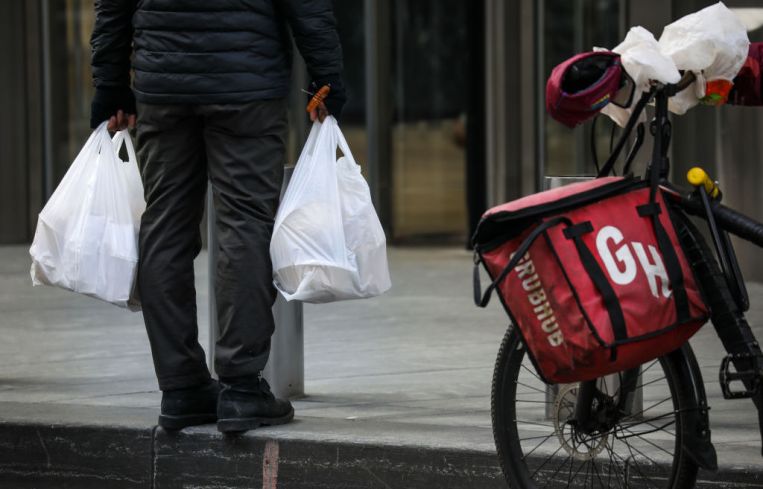City Council Aims to Regulate Food Delivery Apps
By Chava Gourarie February 28, 2020 2:11 pm
reprints
New York City could become the first city to regulate food delivery services like Grubhub, Postmates and Uber Eats.
A package of legislation, introduced in the City Council on Thursday, would require licensing for third-party delivery apps, cap fees at 10 percent, and prohibit companies from taking fees on phone calls that don’t result in orders. The legislation is likely the first local attempt to regulate the on-demand food sector and will be considered in April.
Third-party delivery apps have been criticized in New York for the amount of power they exert over restaurants. Delivery makes up an increasing share of a restaurant’s revenues, but fees as high as 30 percent on each order mean that many restaurants lose money on delivery. But in today’s on-demand economy, many restaurants can’t afford to boycott delivery platforms.
Grubhub, which controls two-thirds of the New York market through its Seamless app, announced changes to its ordering system last month, after coming under fire for charging restaurants for phone calls that didn’t result in orders. Over 30 city councilmembers signed a letter to the company demanding that it refund any commissions earned for those calls.
Under the new regulations, charging for such calls would be outlawed. The bills would cap total transaction fees at 10 percent of a delivery order, require tamper-evident packaging and fee disclosure to customers, and prohibit the third-party apps from dictating menu prices. The licensing bill would give the City Council considerable control over the third-party apps, since it could stipulate the rules under which licenses would be awarded or revoked.
Councilman Mark Gjonaj, the chair of the Committee on Small Businesses who co-sponsored the legislation, also presided over the city’s first meeting on delivery-only kitchens, known as ghost kitchens, last month.
“This package of bills will go a long way towards ensuring that we have a fair and level playing field for New York City’s locally owned restaurants that are struggling to cope with sky-high commissions from these venture capital-backed Silicon Valley tech giants,” Gjonaj wrote in an email.
Gjonaj intends to roll out more legislation over the next year that would address additional issues in food delivery, such as ghost kitchens and data privacy. While it’s too early to know if the legislation will pass, delivery markups are likely unsustainable for both customers and restaurants. A New York Times analysis found that customers pay a markup of between 7 and 91 percent for delivery because delivery services tack on a variety of fees and taxes and because restaurants often inflate the initial menu price to cover those charges.



